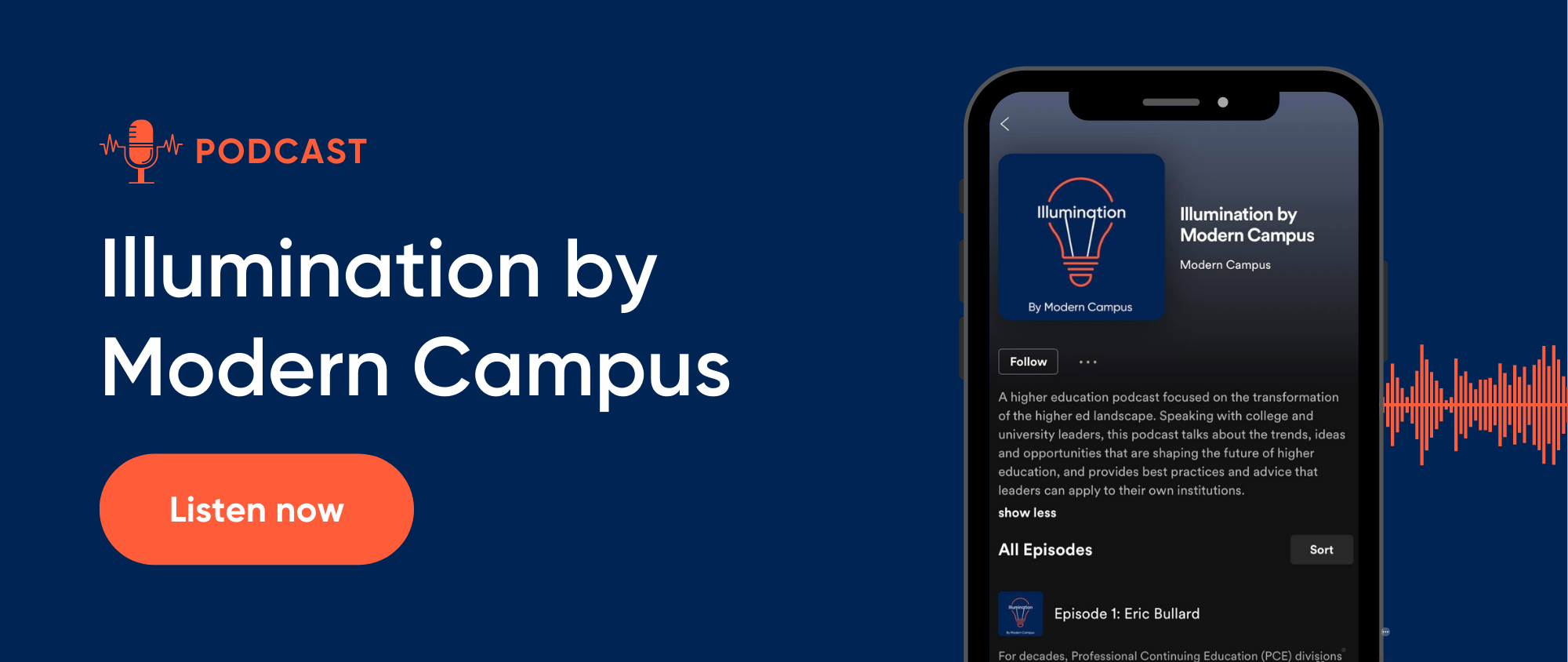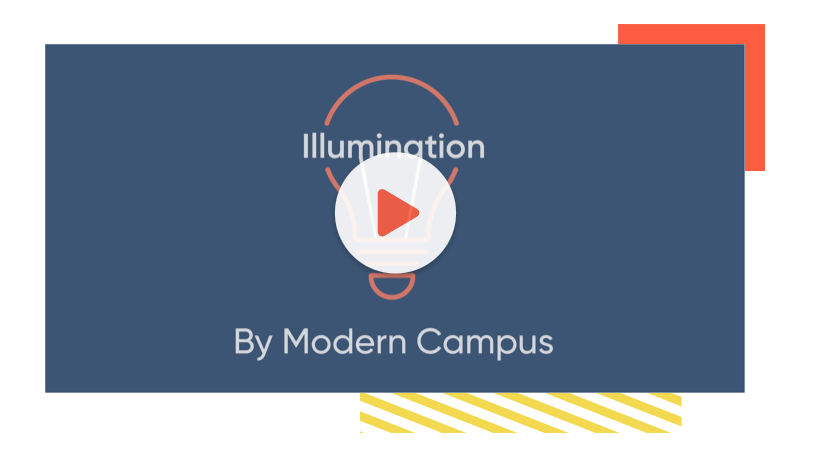Published on
Debunking Six Core Fallacies to Reimagine a Better Future for Higher Education

On this week’s episode of Illumination by Modern Campus, we look at the core fallacies shaping the higher education space and how we can create a more accessible future.
The COVID-19 pandemic has not only disrupted the world around us, but it also highlighted the transformation required of higher education to be more agile and flexible for the modern learner. There are six assumptions—or fallacies—under which higher ed has been operating. But what are they and why are they so important?
These core fallacies may be the reason for higher education’s inability to adapt quickly. But out of the six assumptions, which one in particular is impacting the reimagining of higher education of today?
These fallacies are blurring any vision of a better future of higher education. The pandemic has presented the opportunity for institutions to take a step back and reevaluate their current processes and infrastructure. But what are the steps that need to be taken to overcome these fundamental misunderstandings?
Something that has come out of the disruption from the pandemic is the need for a more flexible and accessible education. More specifically, there’s a need for radical accessibility. But how do you define radical accessibility and why is it so important to serve modern learners?
Breaking free from traditional structures and reshaping decade old processes isn’t easy and is going to require a lot of work. What are some obstacles that are expected to happen when creating this level of accessibility in higher ed?
This need for change has been a long time coming, and it’s sure to bring it’s benefits both to the institution and its learners. So what will it take for higher education institutions to reshape their traditional models to meet the needs of modern learners?
Listen to this week’s episode of Illumination by Modern Campus, featuring Sanjit Sethi, to unlock the answers to these questions and discover some best practices to implement radical accessibility to create a modern higher education.





